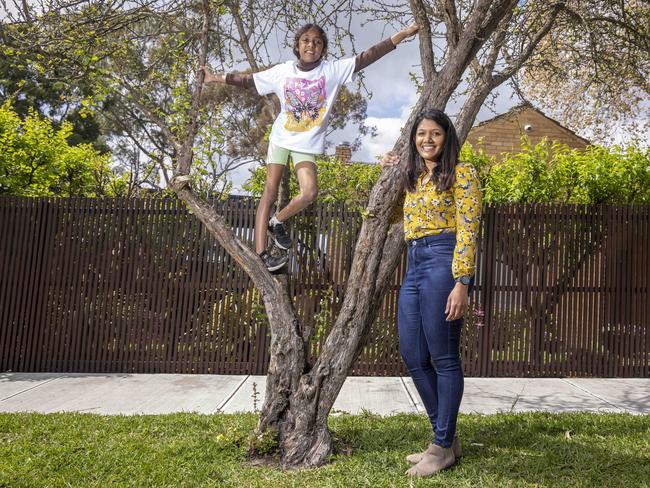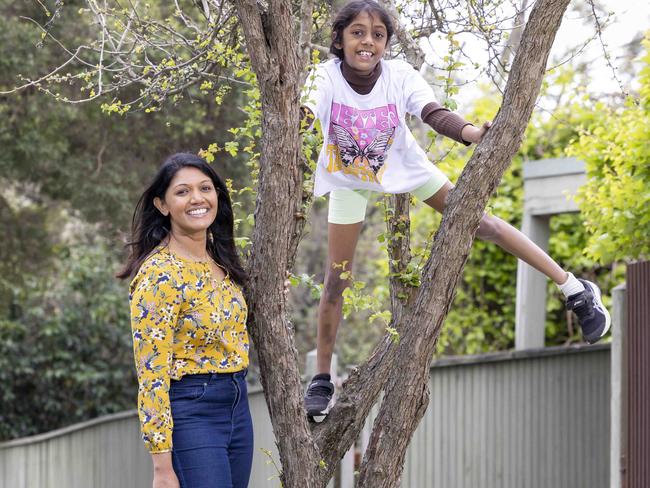Risk-averse parents cutting into kids’ ‘huff and puff’ time, Deakin University study finds
Most parents are fearful of letting their kids climb trees, ride bikes down hills or roughhouse but experts warn there are consequences to not taking risks.
Victoria
Don't miss out on the headlines from Victoria. Followed categories will be added to My News.
Australians are among the most risk-averse parents in the world – and children are paying the price for playing it safe.
A world-first study by Deakin University has found that a parent’s fear of injury from risky play may mean many children do not get enough daily physical activity.
Alethea Jerebine — a PhD student at the Institute for Physical Activity and Nutrition at Deakin and Coventry University in the UK — said while there needed to be more “huff and puff” play, parents needed support, not blame, to make it happen.
“The reasons why many parents are unwilling to allow their children to play adventurously are complex,” she said.
“The solution is a wider conversation.”

Her study, published in the journal Psychology of Sport and Exercise, found that while most parents believed their kids benefited from risk experiences, four in five admitted they were not keen on their own children taking risks when it came to play.
“We found 78 per cent of parents put limits on things like climbing trees, riding bikes fast down hills, rough-housing and play-fighting,” Ms Jerebine said. “The kids whose parents were tolerant of risk were more physically active and played more adventurously than kids whose parents were risk-averse. These children were around three times more likely to meet the Australian physical activity guidelines of an hour a day of ‘huff and puff’ physical activity, the kind of activity we know is good for their physical and mental development.”
Ms Jerebine conducted an online survey of 645 parents, asking what play activities they would let their child participate in, how they felt about play injuries and their beliefs about the benefits of risk-taking.

“We know crowded roads and faster traffic make parents more concerned about letting their children play outdoors,” she said. “Parents are also really busy with work, so when they do have time with their kids they want to make it count, which can lead to an over-involvement in activities kids might otherwise do alone or with friends.”
Her tips include letting children take small risks early. “And, rather than telling kids to be careful when they are playing, parents can watch and wait rather than diving in. Sometimes what ‘be careful’ can mean is that ‘I don’t trust you to make a decision’. Think about your advice and give them clear directions.”
Ms Jerebine says children who experience risk build confidence and independence.
Chathu De Silva encourages her daughter to take risks at play saying Nalia loves to push her physical boundaries.
“I was raised by Sri Lankan parents where risky play was not encouraged,” she said. “She is definitely a risk-taker. Sometimes I do have to take a deep breath and cross my fingers.”
More Coverage
Originally published as Risk-averse parents cutting into kids’ ‘huff and puff’ time, Deakin University study finds





